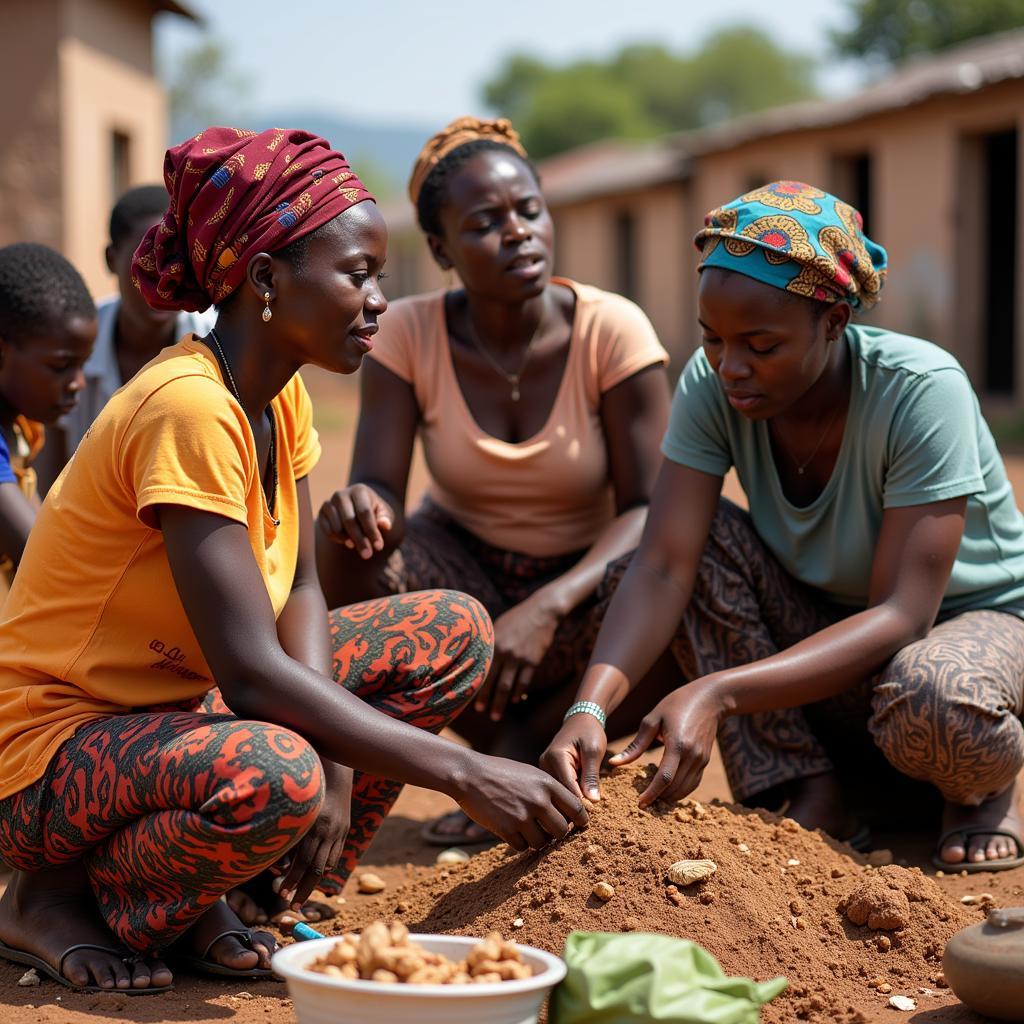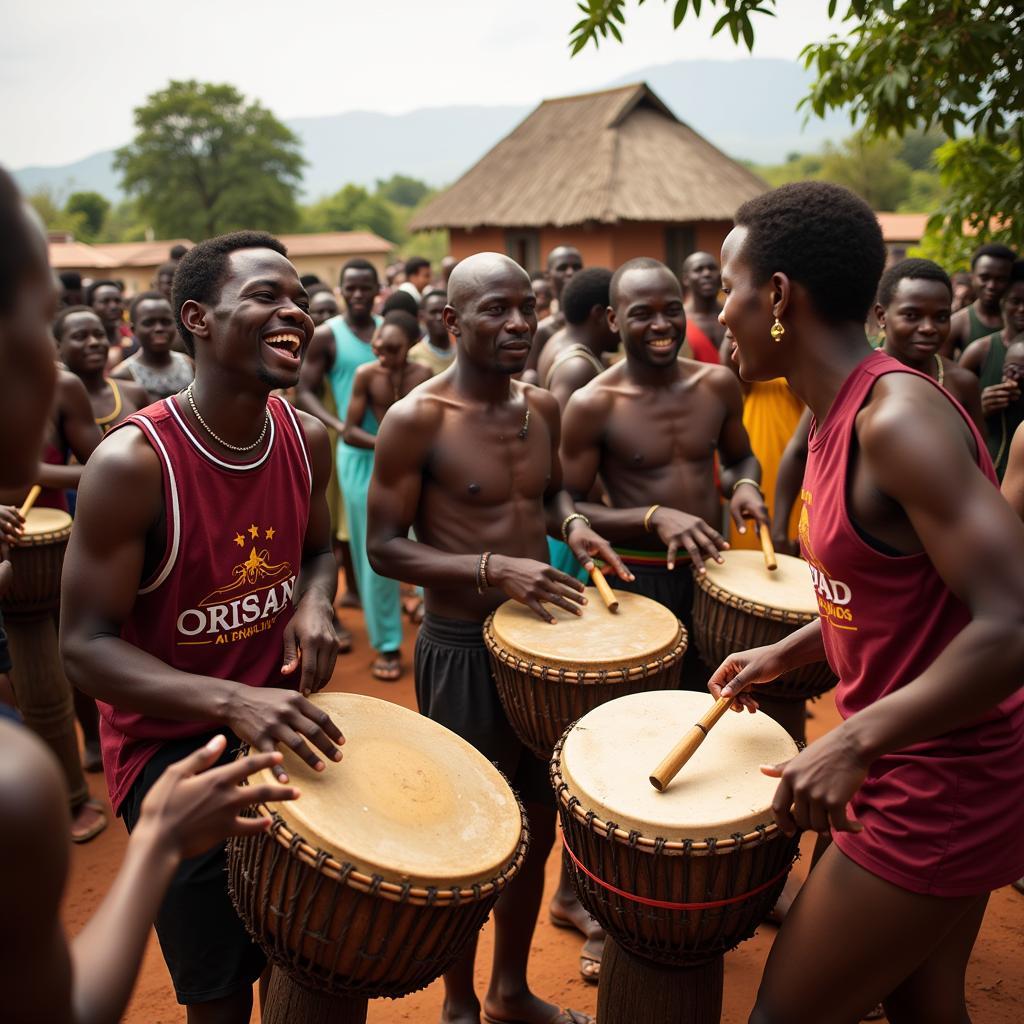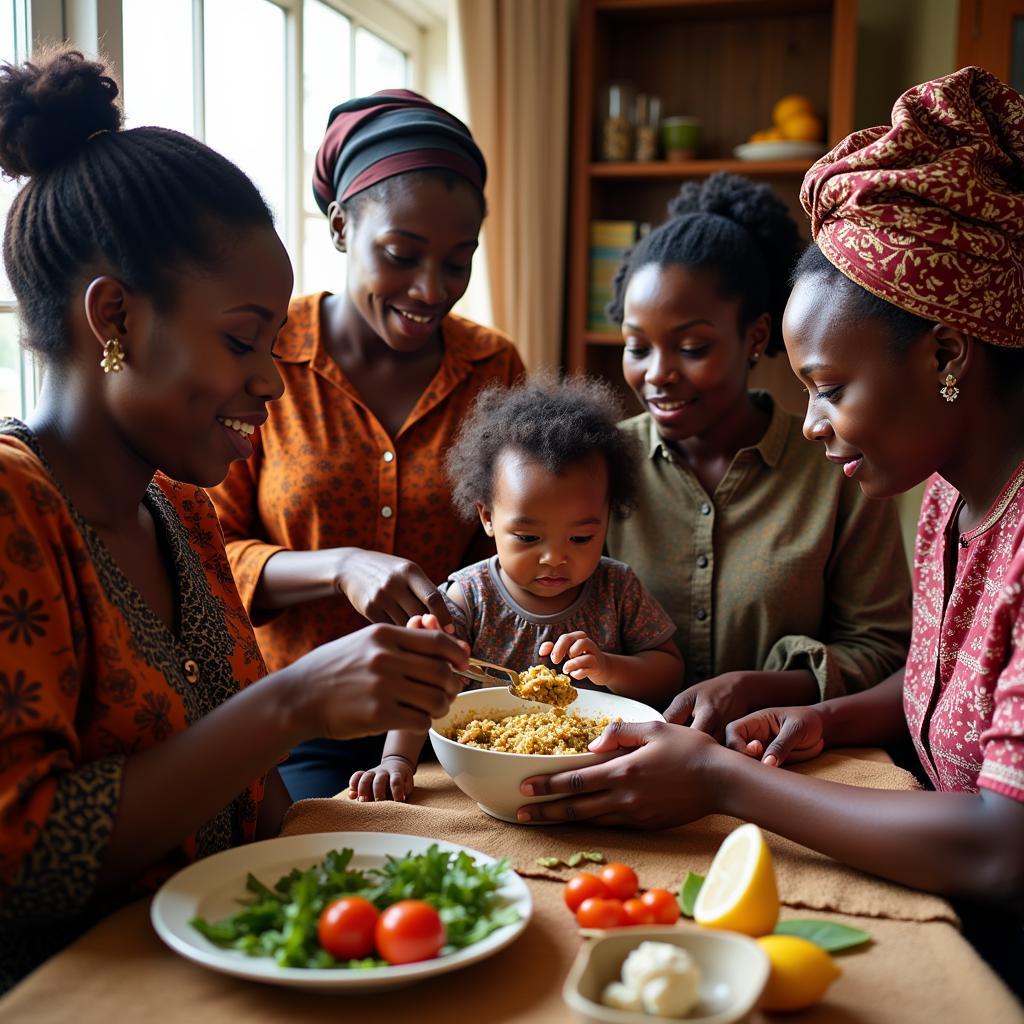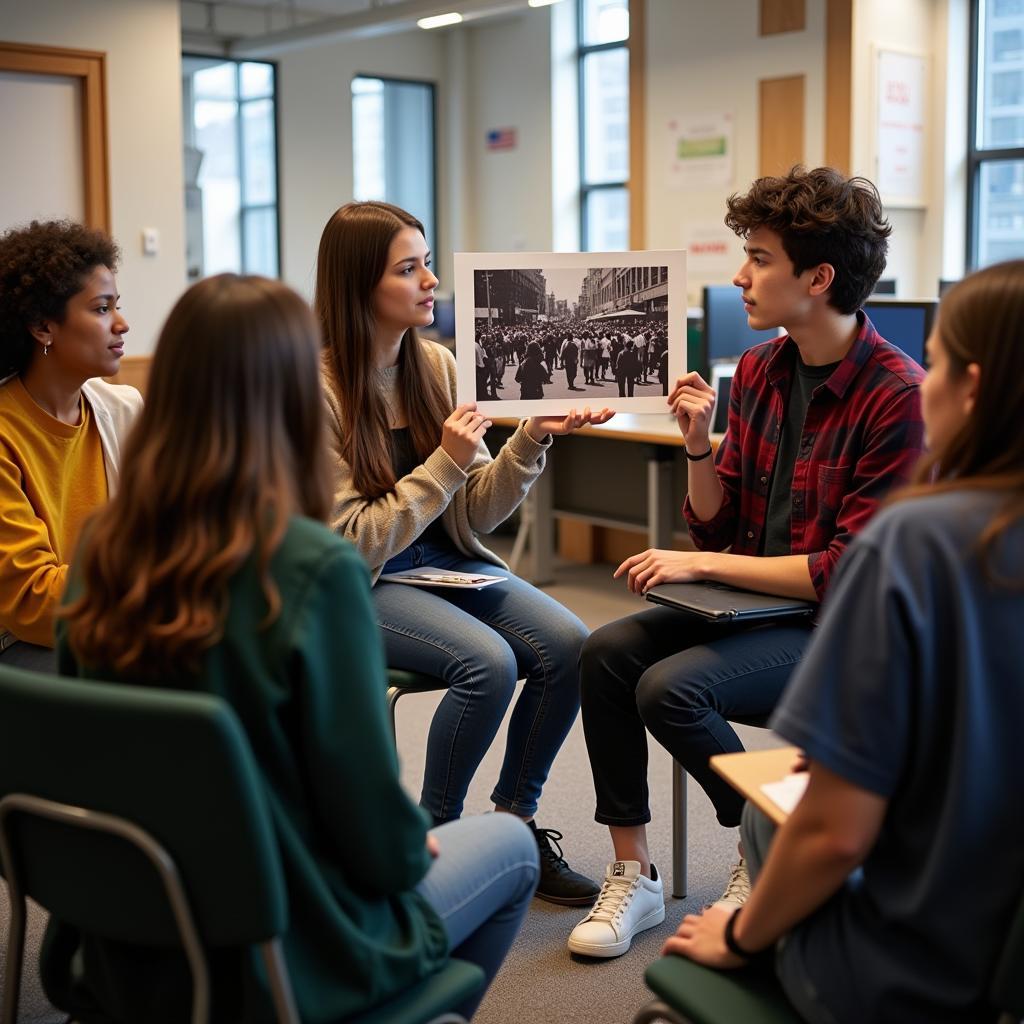African Hair Styles: A Guide to the Diverse and Beautiful Braids, Twists, and Locs of Africa
Africa is a continent brimming with diverse cultures and traditions, and this diversity is beautifully reflected in the various hairstyles worn by African people. From intricate braids to stunning twists and locs, African hair styles are not just expressions of fashion, but also embodiments of cultural identity, history, and social status.
This article delves into the fascinating world of African hair styles, exploring their origins, symbolism, and the incredible artistry involved in creating them. We’ll also discuss the historical and cultural significance of these styles, as well as the growing global appreciation for their beauty and diversity.
Understanding the Roots of African Hair Styles
African hair styles have a rich history that dates back centuries. The practice of styling hair in intricate braids, twists, and locs is deeply rooted in African cultures, with each style carrying its own unique meaning and significance.
Why are African hair styles so diverse?
The diversity of African hair styles is largely due to the continent’s diverse geography and climate. The different environments have resulted in various hair textures, from fine and straight to coarse and tightly curled.
The Importance of Braids in African Culture
Braids are a fundamental element of many African cultures, with variations in style and design often specific to a particular tribe or region. Braids are not just a way to style hair, but they also serve as a form of communication, social expression, and cultural identity.
- Signifying Lineage and Status: In some communities, the length and complexity of braids can indicate the wearer’s age, social status, and family lineage.
- Protective Styling: Braids offer a practical advantage, protecting the hair from harsh weather conditions and reducing breakage.
- Decorative Element: African women often incorporate beads, shells, and other decorative elements into their braids, adding a touch of beauty and cultural significance.
“Braids are not just a hairstyle, they are a story woven into the fabric of our culture.” – Akili Ndidi, a renowned African hairstylist
Exploring Different Types of African Hair Styles
The African continent boasts an incredible array of hairstyles, with each type possessing its own unique characteristics and cultural significance. Let’s dive into some of the most prominent styles:
1. Braids
Braids are perhaps the most ubiquitous African hair style, with countless variations and variations. Some common examples include:
- Cornrows: These are straight, close-to-the-scalp braids, often worn in intricate patterns.
- Box Braids: These are square-shaped braids that can be worn in various lengths and thicknesses.
- Ghana Braids: These are similar to cornrows but can be more elaborate, often incorporating beads and other decorative elements.
- Fulani Braids: These are a traditional style originating from the Fulani people of West Africa, characterized by their distinct patterns and use of beads.
2. Twists
Twists are similar to braids but involve twisting strands of hair instead of braiding them.
- Two-Strand Twists: These twists involve twisting two strands of hair together, resulting in a simple yet stylish look.
- Rope Twists: These twists are created by twisting two strands of hair together, then twisting them into a single rope.
- Passion Twists: These are chunky twists often made with synthetic hair.
3. Locs
Locs are achieved by matting or twisting hair into rope-like strands.
- Sisterlocks: These are very small locs, ideal for achieving a fine, delicate look.
- Dreadlocks: These are larger, thicker locs, often worn in various lengths and styles.
- Freeform Locs: These are created by allowing the hair to naturally lock into place, resulting in a unique and individualistic look.
The Cultural Significance of African Hair Styles
African hair styles are more than just beauty trends. They are deeply intertwined with African history, culture, and identity.
- A Symbol of Strength and Resilience: African hair styles have often served as a symbol of strength and resilience, representing the enduring spirit of African people.
- A Way to Express Individuality: African hair styles allow individuals to express their personal style and identity, defying societal standards and celebrating their unique beauty.
- Connecting with Ancestors: In many African cultures, hairstyles are believed to connect the wearer with their ancestors, carrying on traditions and cultural values.
The Global Appreciation for African Hair Styles
In recent years, African hair styles have gained global recognition and appreciation, with people from all walks of life embracing the diversity and beauty of these styles.
- The Rise of Natural Hair: The movement towards embracing natural hair textures has helped to promote the appreciation for African hair styles.
- The Influence of African Fashion and Culture: The growing influence of African fashion and culture has contributed to the increased visibility and acceptance of African hair styles.
Maintaining and Styling African Hair Styles
Maintaining and styling African hair styles can require specific techniques and products, but the results are well worth the effort.
Tips for Maintaining African Hair Styles:
- Moisturize Regularly: African hair can be prone to dryness, so it’s essential to moisturize regularly.
- Use the Right Products: Use products specifically designed for African hair, such as conditioners, oils, and leave-in treatments.
- Get Regular Touch-Ups: Braids, twists, and locs often need regular touch-ups to maintain their appearance and prevent tangling.
African hair styles are more than just hair. They are a reflection of our history, our culture, and our identity.” – Aisha Aminata, an African hair expert
The Future of African Hair Styles
African hair styles continue to evolve, with new trends and techniques emerging all the time. From natural hair to protective styling, the future of African hair styles promises to be diverse, creative, and inclusive.
Conclusion
African hair styles are a testament to the beauty and diversity of the African continent. They are not just about aesthetics but also embody cultural history, identity, and resilience. As the world becomes increasingly interconnected, it is important to celebrate and appreciate the unique beauty and significance of African hair styles.
Frequently Asked Questions
Q: What is the best way to care for African hair?
A: African hair needs to be moisturized regularly, protected from heat damage, and styled using products specifically designed for natural hair.
Q: Are African hair styles suitable for all hair types?
A: While some African hair styles can be adapted for different hair textures, it’s always best to consult with a professional hairstylist to determine what styles would be best suited for your hair type.
Q: What is the cultural significance of African hair styles?
A: African hair styles are deeply rooted in African culture, often symbolizing heritage, social status, and spiritual beliefs. They are a powerful form of self-expression and cultural identity.
Q: How can I learn more about different African hair styles?
A: There are numerous resources available online and in libraries that provide information on African hair styles. You can also connect with hairstylists specializing in African hair to learn more.



